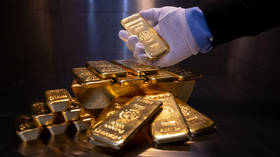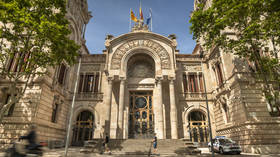Russia’s gold reserves hit new record

Russian gold reserves surpassed the all-time high in monetary terms, reaching $151.9 billion in November, according to the latest data released by the Bank of Russia.
The stockpile surged 2.2%, or $3.198 billion month-over-month; however, in physical terms, the country’s gold reserves declined by about 16 tons to 2,315 tons, decreasing for the second consecutive month, the data shows. The increase in value was due to rising global gold prices.
Russia’s total international gold and foreign exchange reserves amounted to $592.352 billion as of December, with foreign currencies accounting for $412.261 billion.
Russia’s forex reserves consist of monetary gold, Special Drawing Rights (SDR) within the IMF, as well as foreign currency and physical gold held within the country.
Roughly half of Russia’s forex reserves held abroad were frozen by Western central banks in March 2022 as part of the sanctions over the Ukraine conflict. The remaining assets consisting of gold and foreign currency, including the Chinese yuan, are held within the country.
Western countries are currently working on a legal mechanism that would make it possible to confiscate frozen Russian assets to help Ukraine.
Earlier this year, media reports emerged that more and more nations had begun repatriating gold reserves amid the sanctions imposed on Russia. Nearly 60% of respondents in a poll conducted by investment company Invesco said the freezing of almost half of Russia’s forex reserves has made gold more attractive. Meanwhile the share of central banks and sovereign wealth funds that are opting to store the reserves in their countries amounted to 68% compared to 50% in 2020.
For more stories on economy & finance visit RT's business section












